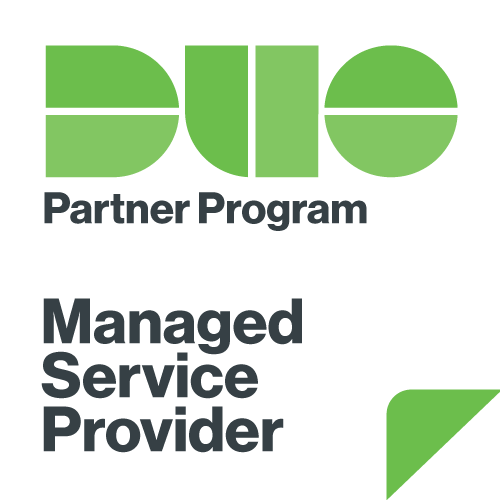Introduction
As cybersecurity threats evolve, protecting network infrastructure is crucial for organizations. Firewalls function as an essential line of defense against malicious attacks. With the complex and changing landscape of cyber risks and firewall technologies, businesses can benefit from guidance on selecting the right firewall solution to suit their requirements and size. This article seeks to demystify the process of choosing appropriate firewall protection, providing readers with an accessible overview of current threats and available safeguards to empower informed decision-making around this vital component of digital security protocols.
Knowing the Basics of Firewalls
Firewall acts as a vigilant guard, monitoring and controlling digital traffic flow within your network. Whether your business is small or large, the fundamental decision between hardware and software firewalls is the critical factor shaping your cybersecurity approach.
Hardware vs. Software Firewalls
Hardware Firewalls: These are physical devices placed between your gateway and the external network. They inspect all incoming and outgoing traffic, offering a simplified and effective solution. Hardware firewalls are known for their ability to handle high traffic volumes and have minimal impact on network performance.
Software Firewalls: When installed on specific devices like PCs or mobile phones, software firewalls offer more accurate setting possibilities. They can blacklist or whitelist specific users and even screen incoming data based on content. While software firewalls offer flexibility, they require individual management regular updates and may be more susceptible to hacking.
Types of Firewalls
Understanding the types of firewalls is crucial to making an informed decision. Here are five common types:
- Packet-Filtering Firewalls: The most basic and least secure, these firewalls operate as checkpoints on routers. They inspect data packet headers, checking source and destination addresses, ports, and protocols against predefined rules. While fast and cost-effective, they offer minimal security.
- Circuit-Level Gateways: Operating at the session layer, these firewalls inspect TCP handshakes to ensure sessions conform to established rules. They are relatively inexpensive and easy to configure but do not inspect data packets, potentially allowing malicious packets from trusted remote hosts.
- Stateful Inspection Firewalls: Combining packet-filtering and circuit-level capabilities, these firewalls monitor traffic on allowed connections, creating state tables for source and destination IP addresses and ports. Although they provide better security, they are slower and consume more system resources.
- Next-Generation Firewalls (NGFWs): These advanced firewalls perform deep packet inspection, introducing application and user control. Application control allows comparison of incoming traffic to predefined application signatures, blocking unauthorized applications. User control enforces rules on a user-by-user basis, enhancing security but at a higher cost and complexity.
- Application-Level Gateways, Proxy Firewalls, and Cloud Firewalls: Proxy firewalls, or application-level gateways, filter traffic at the application layer by acting as intermediaries between systems. Cloud firewalls protect cloud infrastructure from untrusted traffic, offering flexibility in configuration and rapid rule changes.
Factors to Consider When Choosing a Firewall
Threat Intelligence and Risk Assessment
A well-informed decision starts with understanding the threat landscape and conducting a comprehensive risk assessment. Identify common cyber threats and assess their potential impact on your business. Your firewall should be tailored to mitigate your business’s most severe risks.
Data Sensitivity and Industry Regulations
Consider the sensitivity of the data your organization handles. A more robust firewall solution may be necessary in highly regulated sectors like finance or healthcare, where data breaches could have severe consequences. Ensure that your chosen firewall aligns with industry regulations and compliance standards.
IT Infrastructure
When choosing the appropriate firewall, the complexity of your IT infrastructure is a significant consideration. A packet-filtering firewall can be more than enough for a business that only has one location and doesn’t use cloud technology. On the other hand, businesses with numerous locations, remote workers, and cloud-hosted apps would need a more sophisticated firewall solution.
Compatibility with Existing Security Solutions
Your chosen firewall should seamlessly integrate with existing security solutions, such as Intrusion Detection Systems (IDS), Intrusion Prevention Systems (IPS), and Security Information and Event Management (SIEM) solutions. Compatibility ensures a cohesive and effective security infrastructure.
Deployment and Maintenance Considerations
Evaluate how the firewall will be deployed and maintained within your organization. If your IT team lacks the manpower and expertise, opt for a solution that is easy to configure and manage. Alternatively, consider leveraging firewall service providers to alleviate the burden on your internal IT resources.
In-Depth Analysis of Firewall Types
1. Packet-Filtering Firewalls
Suitable for: Small to medium-sized businesses with uncomplicated network setups and minimal security demands.
Pros:
- Quick and economical.
- Simple to set up and keep up.
- Minimal impact on network performance.
Cons:
- Provides minimal security.
- Does not inspect packet content.
- Vulnerable to sophisticated attacks.
2. Circuit-Level Gateways
Suitable for: Small to medium-sized businesses with moderate security needs.
Pros:
- Relatively inexpensive.
- Easy to configure.
- Inspect TCP handshakes for session validation.
Cons:
- Does not inspect data packets.
- May allow malicious packets from trusted remote hosts.
- Limited security features.
3. Stateful Inspection Firewalls
Suitable for: Medium to large enterprises with a need for better security without compromising network performance.
Pros:
- Combines packet-filtering and circuit-level capabilities.
- Provides better security than basic firewalls.
- Monitors and dynamically creates rules for allowed connections.
Cons:
- Slower and consumes more system resources.
- May still lack advanced security features.
- Configuration can be complex.
4. Next-Generation Firewalls (NGFWs)
Suitable for: Enterprises with advanced security requirements and a willingness to invest in a sophisticated solution.
Pros:
- Deep packet inspection for enhanced security.
- Application control to block unauthorized applications.
- User control for granular rule enforcement.
Cons:
- More expensive than basic firewalls.
- Difficult to configure and integrate, especially for large networks.
- Higher resource requirements.
5. Application-Level Gateways, Proxy Firewalls, and Cloud Firewalls
Suitable for: Businesses prioritizing application-layer security, user control, and those leveraging cloud infrastructure.
Pros:
- Inspects both packet headers and content.
- Provides granular control over user access.
- Cloud firewalls offer flexibility in configuration.
Cons:
- It may be more complex to configure and manage.
- Higher cost, especially for advanced features.
- Compatibility with specific devices may be a consideration.
Conclusion
Choosing the right firewall for your business involves considering unique needs, infrastructure, and risks while understanding the strengths and weaknesses of different types. Making an informed decision based on factors like threat intelligence and data sensitivity represents a strategic investment in enhancing your cybersecurity posture and ensuring the long-term resilience of your business.



